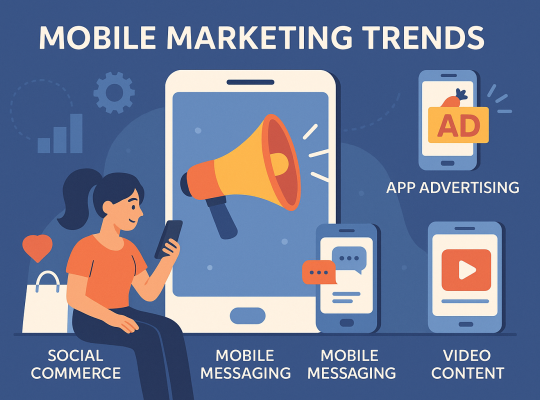As we look ahead to 2025, the landscape of content marketing is poised for transformation. Brands that embrace innovative strategies will not only survive but thrive in an increasingly competitive digital environment. In this article, we’ll explore ten powerful content marketing strategies designed to elevate your brand and connect with your audience on a deeper level. From harnessing the latest trends in AI-driven content creation to leveraging interactive formats that engage and inspire, these strategies are essential for any forward-thinking marketer. Whether you’re a seasoned professional or just starting on your content journey, these insights will equip you with the tools to refine your approach and stand out in the crowded marketplace. Let’s dive in and discover how to position your brand for success in the dynamic world of content marketing!
Understanding Content Marketing in 2025
As we approach 2025, the realm of content marketing is undergoing significant evolution. The digital sphere is becoming more complex and interconnected, demanding brands to adapt their strategies to stay relevant. Content marketing, once a straightforward approach to reaching audiences, now involves a multifaceted strategy that integrates various platforms, technologies, and techniques. With consumers’ attention spans decreasing and their expectations increasing, brands must develop content that not only captures interest but also provides value. This requires a deep understanding of the audience’s needs, preferences, and behaviors.
In this dynamic environment, content marketers need to be agile and innovative. Traditional methods are no longer sufficient; brands must think outside the box to create content that stands out amidst the noise. This involves leveraging cutting-edge technologies like artificial intelligence (AI) and machine learning to analyze data and predict trends. Additionally, the rise of interactive content formats, such as quizzes, polls, and augmented reality experiences, offers new ways to engage users and provide memorable experiences. By embracing these advancements, brands can create more personalized and impactful content.
Moreover, the importance of cross-channel integration cannot be overstated. As consumers navigate through various digital touchpoints, maintaining a consistent and cohesive brand message becomes crucial. Content marketing strategies must encompass a holistic approach, ensuring that every piece of content, whether it’s a blog post, social media update, or email newsletter, aligns with the brand’s overall narrative. This not only reinforces brand identity but also fosters a stronger connection with the audience, ultimately driving loyalty and conversions.
The Importance of Authenticity in Content Creation
In the digital age, authenticity has emerged as a cornerstone of effective content marketing. Consumers are increasingly savvy and can easily discern between genuine and contrived messages. They crave authenticity and transparency from the brands they engage with, seeking content that resonates on a personal level. This shift in consumer behavior necessitates a move away from overly polished and sales-driven content toward more honest, relatable, and humanized storytelling.
Authentic content creation involves sharing real stories, experiences, and values. Brands that embrace authenticity build trust and credibility with their audience. This can be achieved through various means, such as featuring behind-the-scenes glimpses of the company, highlighting employee stories, or showcasing user testimonials. By doing so, brands create a sense of community and belonging, fostering deeper connections with their audience.
Furthermore, authenticity extends to the language and tone used in content. It’s essential to communicate in a way that is true to the brand’s voice and values. This means avoiding jargon and corporate speak in favor of a more conversational and approachable tone. Additionally, addressing any mistakes or shortcomings openly and honestly can enhance a brand’s credibility. Consumers appreciate brands that acknowledge their imperfections and take responsibility, as it demonstrates integrity and a commitment to improvement.
Leveraging Video Content for Engagement
Video content continues to dominate the digital landscape, and its importance in content marketing cannot be overstated. With the proliferation of high-speed internet and mobile devices, videos have become a preferred medium for consuming content. They are engaging, easy to digest, and can convey complex information in a concise and visually appealing manner. As we move into 2025, leveraging video content will be crucial for brands looking to capture and retain their audience’s attention.
One of the key advantages of video content is its versatility. It can be used for a wide range of purposes, from product demonstrations and tutorials to customer testimonials and brand storytelling. Brands can also experiment with different formats, such as live streaming, animated videos, and interactive videos, to keep their content fresh and engaging. By incorporating videos into their content marketing strategy, brands can create more dynamic and immersive experiences for their audience.
Moreover, video content is highly shareable, making it an effective tool for increasing reach and visibility. Social media platforms, in particular, favor video content, often giving it higher priority in users’ feeds. This means that well-crafted videos have the potential to go viral, significantly amplifying a brand’s message. To maximize the impact of video content, it’s important to optimize it for different platforms and devices, ensuring it delivers a seamless viewing experience across all channels.
The Role of SEO in Content Marketing Strategies
Search Engine Optimization (SEO) remains a fundamental component of any successful content marketing strategy. As search engines continue to evolve, so too must the strategies used to optimize content for visibility and ranking. In 2025, SEO is expected to be more sophisticated, with a greater emphasis on user experience and intent. Brands must stay ahead of these changes to ensure their content reaches the right audience at the right time.
One of the key trends in SEO is the increasing importance of semantic search. Search engines are becoming better at understanding the context and intent behind search queries, rather than just focusing on individual keywords. This means that content must be more comprehensive and relevant to the audience’s needs. Brands should focus on creating high-quality, informative content that answers specific questions and provides value. This involves conducting thorough keyword research and understanding the search intent behind those keywords.
Another important aspect of SEO in 2025 is the optimization of content for voice search. With the growing popularity of voice-activated devices like smart speakers and virtual assistants, more users are conducting searches using natural language. This requires a different approach to keyword optimization, with a focus on long-tail keywords and conversational phrases. Additionally, optimizing for local search is crucial, as many voice searches are location-specific. By staying on top of these trends, brands can ensure their content is easily discoverable and accessible to their target audience.
Personalization: Tailoring Content for Your Audience
Personalization has become a key driver of engagement and conversion in content marketing. In an age where consumers are bombarded with generic messages, personalized content stands out and resonates on a deeper level. By tailoring content to the individual preferences, behaviors, and needs of the audience, brands can create more meaningful and relevant experiences. This not only enhances engagement but also builds stronger relationships and drives loyalty.
Effective personalization requires a data-driven approach. Brands must leverage data and analytics to gain insights into their audience’s preferences, behaviors, and pain points. This involves collecting and analyzing data from various sources, such as website interactions, social media activity, and email engagement. By understanding the audience’s journey and identifying key touchpoints, brands can deliver personalized content that aligns with their interests and needs.
There are various ways to implement personalization in content marketing. One approach is to segment the audience based on specific criteria, such as demographics, interests, or behaviors, and create tailored content for each segment. Another approach is to use dynamic content, which changes based on the user’s interactions and preferences. For example, an e-commerce website can display personalized product recommendations based on the user’s browsing history. By incorporating personalization into their content strategy, brands can create more relevant and impactful experiences for their audience.
Utilizing User-Generated Content for Brand Trust
User-generated content (UGC) is a powerful tool for building trust and credibility with your audience. In an era where consumers are increasingly skeptical of traditional advertising, UGC provides a more authentic and relatable perspective. It involves leveraging content created by your customers, such as reviews, testimonials, social media posts, and photos, to showcase real experiences with your brand. By incorporating UGC into your content marketing strategy, you can create a more genuine and trustworthy image.
One of the key benefits of UGC is its ability to generate social proof. When potential customers see positive feedback and experiences from real users, they are more likely to trust and engage with your brand. This can significantly influence their purchasing decisions and drive conversions. Additionally, UGC can help to humanize your brand and create a sense of community. By featuring content from your customers, you show that you value their contributions and appreciate their loyalty.
To effectively utilize UGC, it’s important to encourage and incentivize your customers to share their experiences. This can be done through various means, such as running contests, offering rewards, or simply asking for feedback. Once you have collected UGC, make sure to showcase it across your marketing channels, such as your website, social media, and email newsletters. This not only amplifies the reach of the content but also reinforces its authenticity. By leveraging UGC, you can build a more credible and relatable brand image, ultimately driving trust and loyalty.
Integrating Social Media with Content Marketing
Social media has become an integral part of content marketing, offering a powerful platform for brands to connect with their audience and amplify their message. As we move into 2025, the integration of social media with content marketing will be more critical than ever. With the ever-changing algorithms and increasing competition for attention, brands need to adopt a strategic approach to leverage social media effectively.
One of the key aspects of integrating social media with content marketing is the creation of platform-specific content. Each social media platform has its own unique audience and content preferences, so it’s important to tailor your content accordingly. For example, Instagram is highly visual and favors short-form content, while LinkedIn is more professional and suited for long-form articles and thought leadership pieces. By understanding the nuances of each platform and creating content that resonates with its audience, brands can maximize their reach and engagement.
Another important aspect is the use of social media for content distribution and promotion. Social media platforms offer various tools and features, such as hashtags, stories, and live videos, that can help to amplify your content and increase its visibility. Additionally, social media advertising can be a highly effective way to target specific audiences and drive traffic to your content. By leveraging these tools and features, brands can create a more comprehensive and integrated content marketing strategy.
Finally, social media provides valuable insights and feedback that can inform your content strategy. By monitoring social media metrics, such as engagement rates, shares, and comments, brands can gain insights into what types of content resonate with their audience and adjust their strategy accordingly. This data-driven approach ensures that your content remains relevant and impactful, ultimately driving better results.
The Impact of AI and Automation on Content Creation
Artificial intelligence (AI) and automation are revolutionizing the way content is created, distributed, and optimized. As we look ahead to 2025, the impact of these technologies on content marketing will continue to grow, offering new opportunities for efficiency, personalization, and innovation. Brands that embrace AI and automation can streamline their content processes, enhance the user experience, and stay ahead of the competition.
One of the key benefits of AI in content marketing is its ability to analyze vast amounts of data and generate insights. AI-powered tools can analyze user behavior, preferences, and interactions to identify trends and patterns. This data can be used to create more targeted and relevant content, ensuring that it resonates with the audience. Additionally, AI can automate tasks such as keyword research, content optimization, and performance tracking, freeing up time for marketers to focus on creative and strategic activities.
Another significant impact of AI is its ability to create content at scale. AI-powered content generation tools can produce articles, blog posts, social media updates, and even videos, based on predefined templates and guidelines. While AI-generated content may not yet match the quality of human-created content, it can be a valuable tool for producing large volumes of content quickly and efficiently. This is particularly useful for tasks such as product descriptions, news updates, and repetitive content.
Moreover, AI and automation can enhance the personalization of content. AI algorithms can analyze user data to deliver personalized content recommendations, tailored email campaigns, and dynamic website content. This level of personalization ensures that the content is relevant and engaging, ultimately driving higher engagement and conversion rates. By leveraging AI and automation, brands can create more efficient, personalized, and impactful content marketing strategies.
Measuring Success: Key Metrics for Content Marketing
Measuring the success of your content marketing efforts is essential to understand what’s working, what’s not, and how to improve. In 2025, with the increasing complexity of the digital landscape, it’s more important than ever to track the right metrics and gain actionable insights. By focusing on key performance indicators (KPIs) that align with your business goals, you can evaluate the effectiveness of your content marketing strategy and make data-driven decisions.
One of the primary metrics to measure is engagement. This includes metrics such as likes, shares, comments, and time spent on content. High engagement rates indicate that your content resonates with your audience and encourages interaction. Additionally, tracking click-through rates (CTR) and bounce rates can provide insights into how effectively your content drives traffic and retains visitors. These metrics help to understand the quality and relevance of your content.
Another crucial metric is conversion. This involves tracking how well your content drives desired actions, such as filling out a form, signing up for a newsletter, or making a purchase. Conversion rates provide a clear indication of how effectively your content supports your business objectives. To measure conversions accurately, it’s important to set up proper tracking mechanisms, such as conversion pixels and goal tracking in analytics tools.
Finally, it’s important to measure the overall reach and visibility of your content. This includes metrics such as website traffic, social media followers, and search engine rankings. By tracking these metrics, you can understand how well your content is performing in terms of attracting and retaining an audience. Additionally, monitoring the performance of different content formats and channels can provide insights into what works best for your brand. By focusing on these key metrics, you can continuously optimize your content marketing strategy and achieve better results.
Future Trends in Content Marketing to Watch
As we look to the future, several emerging trends are set to shape the content marketing landscape. Staying ahead of these trends is crucial for brands looking to remain competitive and relevant. One of the most significant trends is the rise of immersive content experiences. Technologies such as virtual reality (VR) and augmented reality (AR) are transforming the way content is consumed, offering more interactive and engaging experiences. Brands that embrace these technologies can create memorable and impactful content that stands out in a crowded marketplace.
Another important trend is the growing importance of sustainability and social responsibility in content marketing. Consumers are increasingly conscious of the environmental and social impact of their choices, and they expect brands to demonstrate a commitment to sustainability. This involves creating content that highlights your brand’s efforts in areas such as eco-friendly practices, ethical sourcing, and community support. By aligning your content with these values, you can build a more positive and meaningful relationship with your audience.
Finally, the continued evolution of AI and machine learning will play a significant role in the future of content marketing. These technologies will enable even more sophisticated personalization, predictive analytics, and content automation. This will allow brands to deliver highly targeted and relevant content at scale, enhancing the user experience and driving better results. Additionally, AI-powered tools will continue to evolve, offering new capabilities for content creation, optimization, and distribution. By staying abreast of these trends and incorporating them into your strategy, you can position your brand for success in the dynamic world of content marketing.




